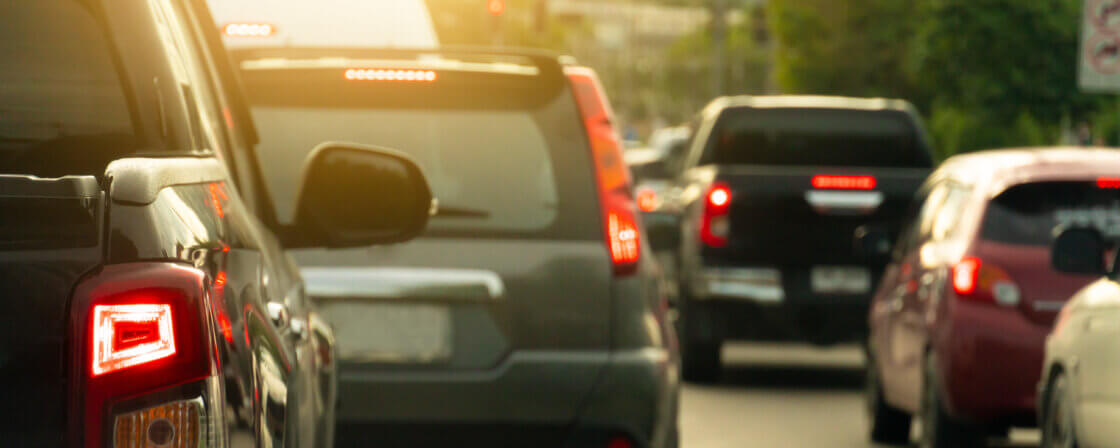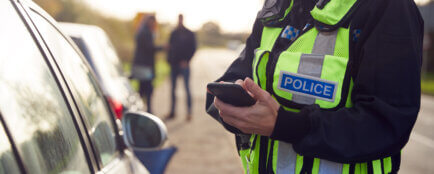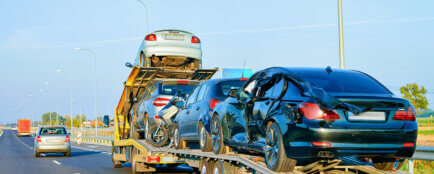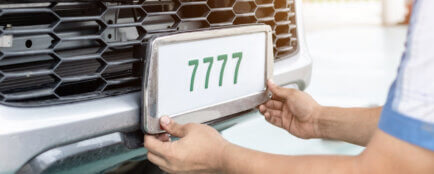What is a number plate and why is it important
A license plate, or license plate number, officially a vehicle registration mark, is an alphanumeric code assigned by the state to every motor vehicle operated on public roads. Its main function is to uniquely identify the vehicle in traffic, to the state, insurance companies, and the police. The mark has 5 to 8 characters and must contain at least one letter and a number.
The plate is displayed on the registration plates placed on the vehicle and is valid as an official identifier. In conjunction with the Vehicle Register, it allows you to trace who owns the car, when it was registered, whether it has a valid compulsory insurance or technical inspection. The number plate thus plays a key role in everyday traffic – from a routine roadside check to an insurance claim or the settlement of an offence.
It is also important to remember that the registration plate is not the property of the car owner. It is the property of the state, which only “lends” you the plate. Once the car is removed from the registration, the plate is returned.
Who allocates the number plate and when you get it
A vehicle registration plate is assigned when the vehicle is registered in the road vehicle register, which is administered by the municipal authorities of municipalities with extended jurisdiction. In other words, the plate is not issued by the Ministry or the State as a whole, but by the specific office where you live or where your business is based.
You get the number plate of your car when:
- the first registration of a new vehicle,
- importing a car from abroad,
- change of ownership(transfer of the car),
- loss or destruction of the plate (issue of a duplicate).
The process of allocation is usually simple, after presenting the technical license, proof of insurance and other details, the official will allocate the plate, which you will then receive on the physical plates. These are compulsory to be attached to the vehicle (usually front and rear, exceptions being motorcycles).
The plate stays with the vehicle for as long as it exists, unless it is replaced due to loss or re-registration. It is not transferable between different cars and cannot be ‘inherited’ (the exception is a custom plate).
Are you solving a similar problem?
We can also help you with the law on the road
Not sure what to do if you lose your license plate? Or are you facing a fine for a plate-related offence? Contact an Affordable Solicitor – our solicitors can advise you quickly, online and clearly. Whether you’re dealing with a fine, registration or defending against a misdemeanor charge, we know how to help.
I need help
- When you order, you know what you will get and how much it will cost.
- We handle everything online or in person at one of our 6 offices.
- We handle 8 out of 10 requests within 2 working days.
- We have specialists for every field of law.
The registration plate in the Czech Republic is usually in the format of two letters (or one) followed by a combination of numbers. For example, ‘1AB 2345’. The first character indicates the region or administrative area where the vehicle was registered. It is on this principle that the so-called “registration plate by region” is based, which is an indicative way of knowing the origin of a vehicle.
Overview of number plates by region:
- A – Prague
- B – South Bohemia Region
- C – South Moravian Region
- E – Pardubice Region
- H – Hradec Králové Region
- J – Vysočina Region
- K – Karlovy Vary Region
- L – Liberec Region
- M – Olomouc Region
- P – Pilsen Region
- S – Central Bohemia Region
- T – Moravian-Silesian Region
- U – Ústí nad Labem Region
- Z – Zlín Region
The number of available combinations varies and as soon as they are exhausted, the state switches to newer formats that are no longer linked to a specific region (e.g. the so-called centrally allocated number plates).
In addition to the classic white registration plates, there are also plates with different colour designs which at first sight indicate a special category of vehicle. For example, green lettering indicates pure electric vehicles, yellow plates belong to work machines and tractors, and blue plates belong to diplomatic mission vehicles. The colour of the plate thus plays not only an aesthetic but also a practical role, allowing the police, authorities and other road users to easily distinguish the specific mode in which the vehicle is operated.
What the number plate law says
The Act on the Conditions of Operation of Vehicles on the Road clearly states how the vehicle registration plate is to be used. It is held by the State and its use is subject to clear rules.
A vehicle must be fitted with the prescribed number of registration plates – usually two (front and rear), but only one is required for motorcycles. The number plate of the car must be legible, unobstructed and affixed in the prescribed place. It is not permitted to cover, bend, tape over or in any way alter the appearance of the plate.
If the number plateis lost or destroyed, the owner is obliged to report the situation and request a duplicate. In the meantime, he/she must not drive the vehicle as he/she would be breaking the law.
The law also regulates who can apply for a replacement plate and when – for example, when changing residence or when re-registering a vehicle from another county. Although the system tries to keep track of the origin of the car, license plates by county are now not as clear for newer makes.
Tip for article
Tip: From July 2025, the rules of the game change for Czech drivers. You will no longer have to queue at the office to get your licence, the police will be called less often to accidents without injuries and the bureaucracy of car registration will be reduced. But there will also be new checks on the roads. Read on to find out what all is changing for drivers.
How much will you pay for driving without plates?
Failure to comply with the rules for using your vehicle’s registration plate can be embarrassing and expensive. The law remembers both misdemeanors and felonies related to license plates.
An overview of the most common penalties:
- Driving without a number plate (e.g. after loss or before registration) – a fine of up to CZK 10,000
- Covering or illegibility of a number plate – up to CZK 5,000 on the spot, CZK 10,000 in administrative proceedings
- Use of a foreign number plate – criminal offence of forgery and alteration of a public document, imprisonment is possible
- Damaged or altered number plate (e.g. letters taped over) – offence with a fine of up to CZK 5,000
The driver is responsible for ensuring that the plate is legible even in adverse conditions. So if you can’t clean the mud off your plate, there is no excuse, it is an offence.
In terms of evidential value, the number plate of a car is of vital importance. A radar image, camera footage or police testimony can be crucial in identifying a car by its plate.
Myths you may also believe
Although the registration plate is a common part of everyday traffic, there are many half-truths and myths surrounding it.
For example, many people think thatthe plate belongs to the owner of the car. Wrong. The license plate is the property of the state and is returned or invalidated when the vehicle is totaled.
Further, some people think that if they lose the license plate, they can print a copy. This is not true. Driving with a copy is considered driving without a valid license plate and is subject to a fine.
Some may also believe that the license plate can be transferred to another car. However, this is only possible in very specific cases (e.g. plates on request), not normally.
Then there are the various home repairs and tampering with the number plate thinking that if I tape the number over, nothing happens. But even a slight modification is an offence and can backfire.
Finally, let’s mention probably the most common myth, which is that you can always tell the original county from the plate. This is no longer the case with the new formats – licence plates by county are used, but not always unambiguously.
Tip for article
Tip: Every vehicle that is driven on public roads must undergo a regular roadworthiness test at an MOT test station. When do you need to go, what do you need to take, how much do you pay and what do the technicians check? Find out in our article.
Summary
A vehicle registration plate is a legal and administrative identifier that determines the relationship of a vehicle to the state, the insurance system and road traffic. Every car, without exception, must have it, and any violation of the rules associated with its use can be sanctioned – with a fine or even criminal prosecution. The plate is assigned by county, although this is not the rule for newer formats. The law strictly defines how the sign is to be used and drivers should exercise caution whenever handling it. Any infractions can cost you more than just money – even a driving ban. The number plate is assigned by the local authority when a vehicle is registered and the plate always relates to a specific car, not its owner. A registration plate can be assigned when you re-register, import a car, change ownership or lose the original plate. The format of the number plate is based on a combination of letters and numbers, where the first character often indicates the region of registration – called a ‘regional number plate’. However, this system is giving way for newer vehicles to central allocation with no regional link. The law clearly sets out obligations regarding the legibility, location and condition of the plate. Any tampering – whether covering, re-sticking or using someone else’s plate – can lead to fines of up to CZK 10,000 or even criminal prosecution.
Frequently Asked Questions
Can I drive without a license plate if I'm expecting it from the office?
No, you can’t drive on a public road without a number plate. There is the option of a license plate, but it has limited validity.
Who actually has "ownership" of the license plate?
The license plate is the property of the state. You only use it for the duration of the car registration.
Can the owner of the vehicle be identified by the licence plate number?
Only to authorised authorities – the ordinary citizen does not have this option and the law does not allow it.
What if someone steals my license plate?
Report it immediately to the police and ask the office to issue a duplicate.
Do I have to have the number plate readable in snow or mud?
Yes. It is the driver’s responsibility to ensure that the sign is legible in all conditions.




